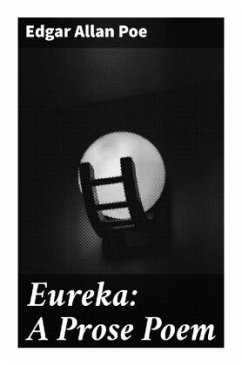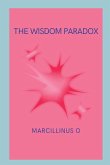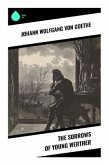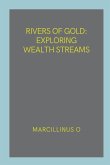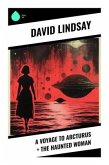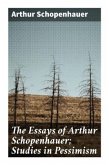Edgar Allan Poe's "Eureka: A Prose Poem" is a groundbreaking work that merges poetry and philosophy, exploring the nature of the universe, existence, and the interplay between science and metaphysics. Written in a lyrical prose style, Poe's narrative unfolds as an impassioned meditation on creation, culminating in a cosmological theory that anticipates later scientific inquiry. Set against the backdrop of the 19th-century intellectual zeitgeist, Poe grapples with the concept of infinity and the sublime, offering insight into his existential concerns and the tensions between chaos and order. Poe, recognized primarily for his macabre tales and mastery of Gothic fiction, was deeply influenced by the tumultuous intellectual climate of his time, including burgeoning scientific discoveries in astronomy and physics. His profound interest in the nature of reality and imagination can be traced back to his own tragic experiences-such as the loss of loved ones-that shaped his worldview. "Eureka" reveals Poe's ambition to transcend conventional literature by delving into ambitious philosophical inquiries, articulating a vision of the cosmos that reflects his restless spirit. For readers drawn to the intersections of literature, science, and philosophy, "Eureka" is an invaluable text that challenges conventional boundaries. Poe invites us to contemplate the vast mysteries of existence and our place within them, making this work not just a prose poem, but a profound exploration that continues to resonate with modern readers seeking to understand the universe's enigma.
Bitte wählen Sie Ihr Anliegen aus.
Rechnungen
Retourenschein anfordern
Bestellstatus
Storno

